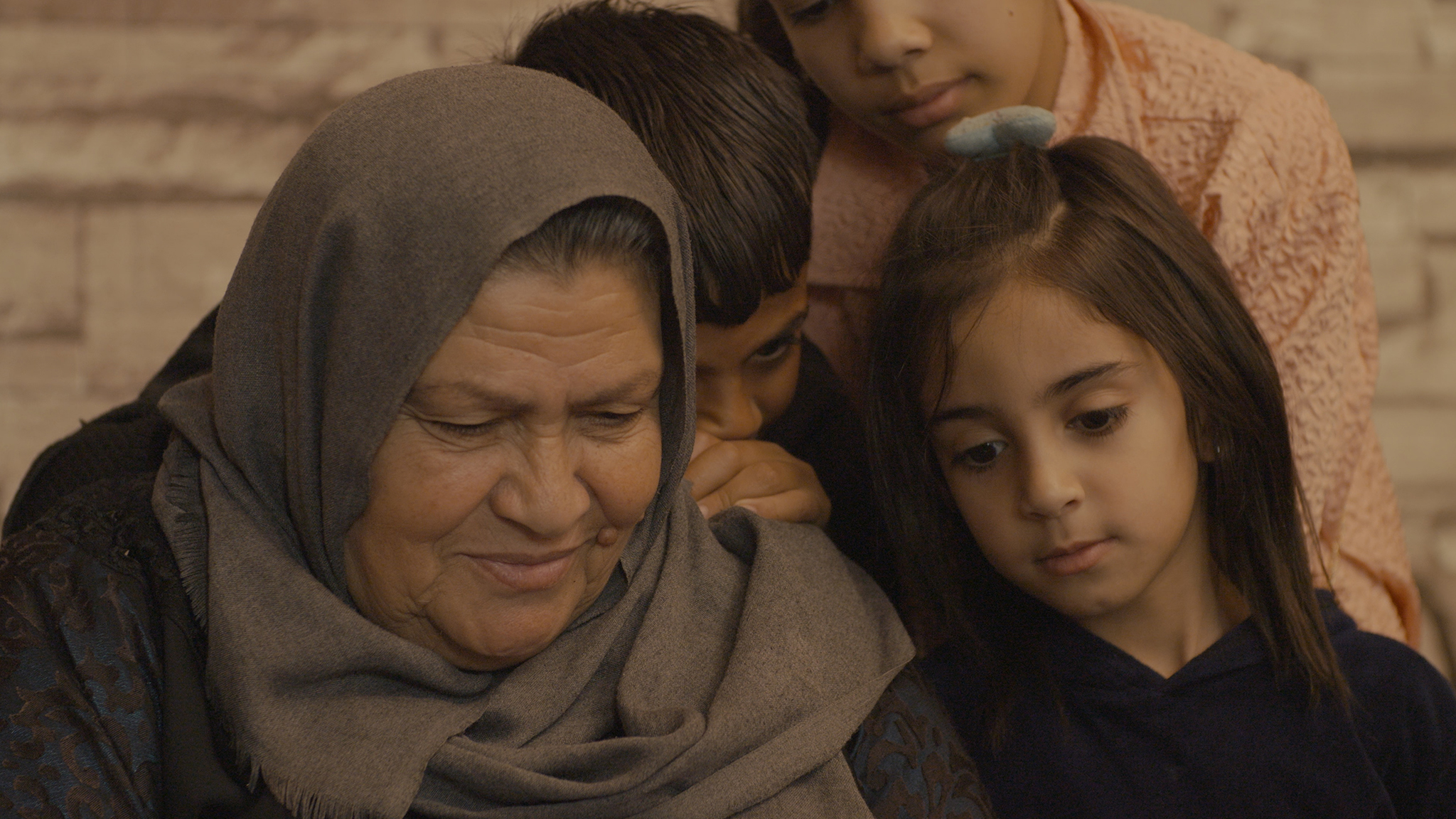‘Aisha’s Story’ highlights the importance of preserving Palestinian food culture

Photo by Chen Wang.
Aisha’s Story, a documentary film about the preservation of Palestinian culture and heritage in exile by UVic faculty and researchers, has won Best Documentary at the Toronto International Women Film Festival.
The film is the result of several years of work by members of the UVic community, including Dr. Elizabeth Vibert, a history professor; Chen Wang, a writing masters student; and Salam Barakat Guenette, who has a master’s degree in history from UVic.
The film highlights the story of Aisha Azzam, a Palestinian refugee living in Jordan.
Azzam’s parents were displaced in 1948 during the first Arab-Israeli war, which is known to Palestinians as The Nakba (catastrophe). She was born and raised in Jordan, but she remembers childhood trips into Jerusalem on Fridays, where she and her family would pray at the Al-Aqsa Mosque. After 1948, part of Jerusalem was under Jordanian control, which meant Palestinian refugees were still able to visit the mosque.
This changed after the third Arab-Israeli war in 1967, when the entirety of Jerusalem came under Israeli control. In the film, Azzam calls the day they could no longer make this trip to Al-Aqsa “the saddest day.”
She now lives in the Baqa’a refugee camp — which is home to more than 131 000 refugees — where she works to preserve a community connection to Palestine through food.
For the past 35 years, Azzam has operated a stone mill in Baqa’a with her late husband, Hassan — using the same millstone her grandparents brought with them when they left Palestine in 1948. She provides a vital service for her community by providing some of the staple ingredients of Palestinian cuisine.
Wheat is a central ingredient to many Palestinian dishes, Vibert and Barakat Guenette told the Martlet, and can be milled a number of different ways depending on what is needed for the specific dish.
Azzam’s mill benefits nearby farmers, individual customers, and local shops — ensuring members of her community are able to keep making these dishes and keeping their connection to Palestinian culture alive. Barakat Guenette said that, for Palestinians living in exile, food is one of the main avenues to connect with their culture.
“It’s the closest to the heart. It’s what reminds you of home, [and] it’s also the simplest thing that you can control when you can’t control anything else.”
Vibert said she first met Azzam in 2018, while visiting a number of sites in Jordan where communities were taking action to reclaim control of their food systems, and immediately felt drawn to Azzam and her story.
“I spent an hour and a half talking to Aisha and just thought, wow … both [because of] the actions she’s taken across her life to secure Palestinian culture in exile, but also for the way that her story represents so many other people in exile from Palestine,” Vibert said.
Barakat Guenette, too, said she felt a strong connection to Aisha. “She’s filled with warmth and love for the people around her, so it’s a privilege to be part of her story,” she said.
While the film highlights the politics of return, and failed international efforts to address displaced Palestinian refugees, “they are very careful to say that their struggle is not with Jewish people. It’s with the occupiers of their land,” said Vibert. “Historical relations between Jews, Muslims and Christians in this territory of Israel-Palestine were historically very positive. Of course, with tensions and fights at various times, but these communities coexisted in that land for generations.”
A number of climate-related challenges, including water shortages, drought, extreme heat, and a shortened cold season threaten Jordan, where more than two million Palestinian refugees live. While wheat is a staple to Palestinian cuisine, Vibert says that some farmers are starting to plant barley instead due to its resiliency.
Earlier this month, Aisha’s Story was awarded Best Feature Documentary by Toronto International Women Film Festival, where it is slated to be screened in 2025.
Barakat Guenette said that the award is “a celebration of Aisha and every woman like her, who are trying really hard to hold on to a memory of what they had, and present that memory as a future for their children and grandchildren.”
“It’s good to see … with all the political trauma that’s going on at the moment, that the story was not dismissed outright. Just that it was accepted speaks to how much it means, and the humanity of the story. That it’s not just a Palestinian story, it’s a human story that deserves telling.”
Aisha’s Story will be shown on campus in February 2025 during Humanities Week. Those interested in learning more can visit the film’s website or Instagram page @aishasstoryfilm.






